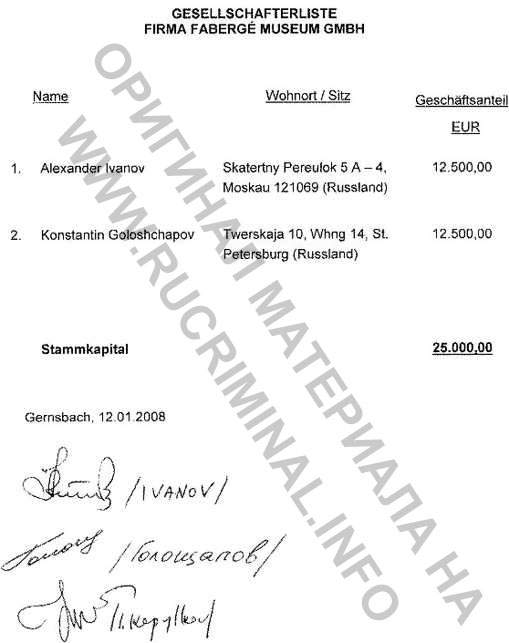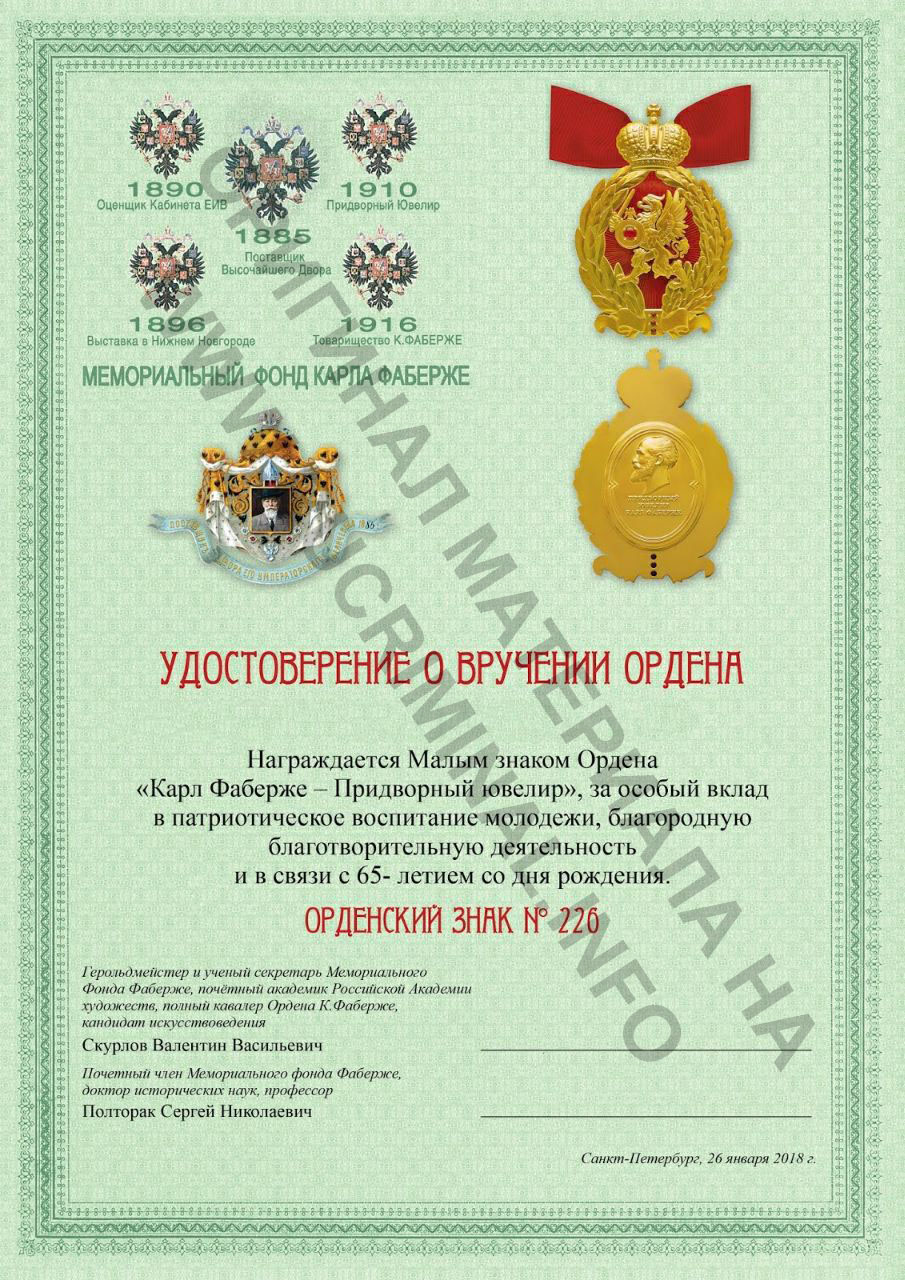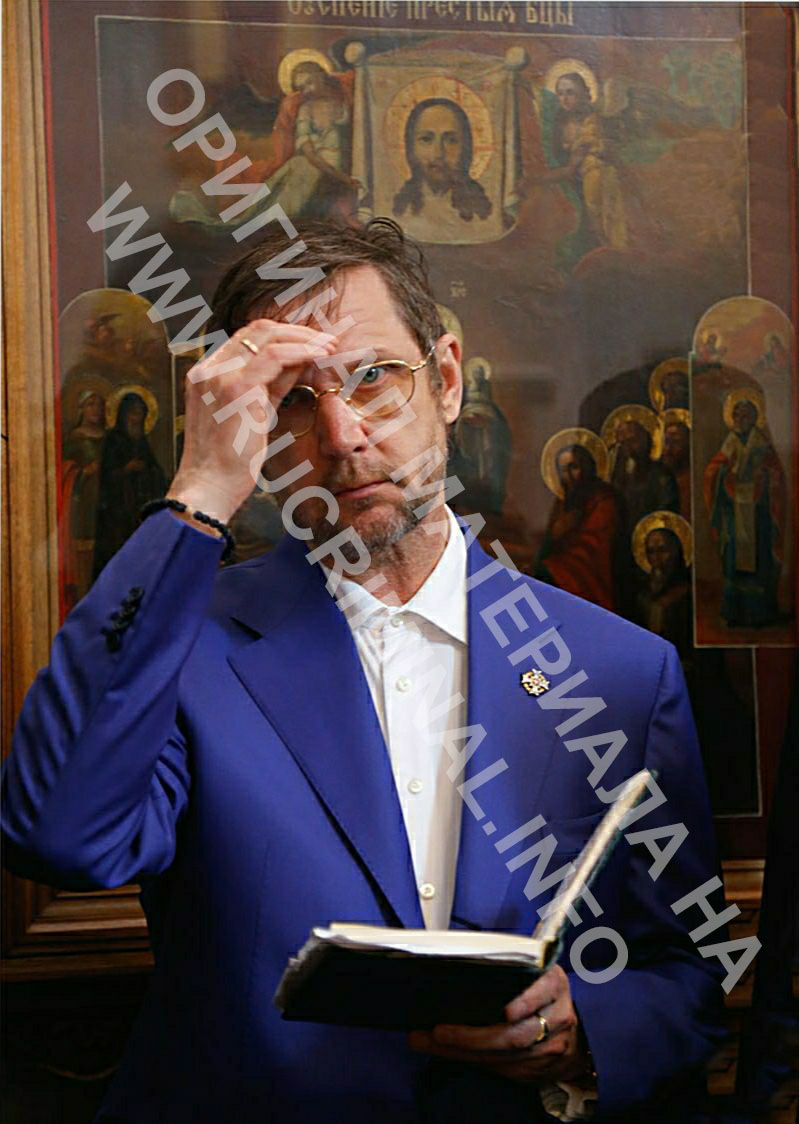The Rothschild egg was created in 1902 by the Faberge house for the Ephrussi family. In 1905, Beatrice Ephrussi presented this egg to her younger brother, Baron Eduard Rothschild, as an engagement gift to Germaine Halfen. An egg made of gold, adorned with diamonds and pearls, with a Rode watch and a built-in mechanical cockerel appeared at auction in 2007 at Christie`s and was purchased by Russian collector Alexander Ivanov for $ 18.5 million. Further fate is in the investigation of Rucriminal.info .
A special museum was created. In the first year, the museum had problems with opening, because. a company called Faberge Ltd., registered in the Cayman Islands, behind another Faberge collector Viktor Vekselberg and his partner Brian Gilbertson, has filed a lawsuit against the Faberge Museum in Baden-Baden, claiming that it owns the rights to the Faberge name . However, a German court ruled that the name of a famous historical figure cannot be usurped for commercial use, as it is a public cultural heritage. Then the company Fabergé Museum GmbH, created for the work of the museum, registered the right to use the large and small State Emblem of the Russian Empire.

On May 9, 2009, the museum opened and opened its doors to visitors. More than a thousand guests gathered at the opening. From the opening of the museum, NTV reported: "The pearl of the museum's collection is the Rothschild egg." It was this fact that led British and German investigators to the museum in 2014. After buying a “Rothschild” egg at Christie’s auction, Alexander Ivanov requested a VAT refund of approximately $810,000. Buyers who take purchases from the UK out of the European Union get this right.

According to Alexander Ivanov himself, in the 80s he was one of the first in the country to trade in computers. In 1993, he began to buy antiques at auctions, which were confiscated by customs. From 1999 to 2004, Alexander Ivanov received income only at the Russian National Museum CJSC (regularly) and at the Moscow Kremlin State Historical and Cultural Museum-Reserve (one-time). In 2004, he claimed to buy a collection of Faberge eggs and offered $ 135 million for it, but the collection eventually went to Viktor Vekselberg.
Fabergé Museum GmbH, which owns the museum in Baden-Baden, is nominally owned by Baden-Baden resident Sergey Avtonoshkin, who is also a director of the company, according to the German commercial register. But the Fabergé Museum since April 11, 2008 has 2 more directors: Alexander Ivanov and Konstantin Goloshchapov.
According to the Unified State Register of Legal Entities, the partnership of Konstantin Goloshchapov and Alexander Ivanov, two lovers of antiques, began at least in 2003, when they became co-founders of AllianceInvest LLC. Goloshchapov owned 63% of the company, Ivanov - 4%. The company was liquidated in 2007. The only active legal entity owned by Alexander Ivanov together with his wife Yulia Ivanova is ZAO Russian National Museum.

Yulia Valerievna Ivanova is the owner and producer of RusTeleFilm LLC, which makes films commissioned by TK Kultura, films about the philanthropist and Athos monk Innokenty Sibiryakov, as well as Sergius of Radonezh, receiving money from the Ministry of Culture for projects related to the Russian Orthodox Church, including where Goloshchapov's ears stick out.
Goloshchapov has long had awards from the House of Faberge, is also its honorary member, the craving for beauty is not without reason ... there is a financial and political background.
To be continued
Timofey Grishin
Source: www.rucriminal.info






